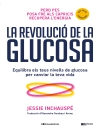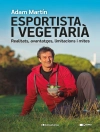Literature on the ethics and politics of food and that on human–animal relationships have infrequently converged. Representing an initial step toward bridging this divide, Messy Eating features interviews with thirteen prominent and emerging scholars about the connections between their academic work and their approach to consuming animals as food. The collection explores how authors working across a range of perspectives—postcolonial, Indigenous, black, queer, trans, feminist, disability, poststructuralist, posthumanist, and multispecies—weave their theoretical and political orientations with daily, intimate, and visceral practices of food consumption, preparation, and ingestion.
Each chapter introduces a scholar for whom the tangled, contradictory character of human–animal relations raises difficult questions about what they eat. Representing a departure from canonical animal rights literature, most authors featured in the collection do not make their food politics or identities explicit in their published work. While some interviewees practice vegetarianism or veganism, and almost all decry the role of industrialized animal agriculture in the environmental crisis, the contributors tend to reject a priori ethical codes and politics grounded in purity, surety, or simplicity. Remarkably free of proscriptions, but attentive to the Eurocentric tendencies of posthumanist animal studies, Messy Eating reveals how dietary habits are unpredictable and dynamic, shaped but not determined by life histories, educational trajectories, disciplinary homes, activist experiences, and intimate relationships.
These accessible and engaging conversations offer rare and often surprising insights into pressing social issues through a focus on the mundane—and messy— interactions that constitute the professional, the political, and the personal.
Contributors: Neel Ahuja, Billy-Ray Belcourt, Matthew Calarco, Lauren Corman, Naisargi Dave, Maneesha Deckha, María Elena García, Sharon Holland, Kelly Struthers Montford, H. Peter Steeves, Kim Tall Bear, Sunaura Taylor, Harlan Weaver, Kari Weil, Cary Wolfe
Tabla de materias
Introduction : Messy Eating
Samantha King, R. Scott Carey, Isabel Macquarrie,
Victoria N. Millious, and Elaine M. Power | 1
1. Turning Toward and Away
Cary Wolfe | 19
2. Subjectivities and Intersections
Lauren Corman | 36
3. Being in Relation
Kim Tallbear | 54
4. The Tyranny of Consistency
Naisargi Dave | 68
5. Justice and Nonviolence
Maneesha Deckha | 84
6. Doing What You Can
Kari Weil | 99
7. Waking Up
H. Peter Steeves | 112
8. Entangled
María Elena García | 128
9. Disability and Interdependence
Sunaura Taylor | 143
10. Asking Hard Questions
Neel Ahuja | 157
11. Interspecies Intersectionalities
Harlan Weaver | 172
12. Living Philosophically
Matthew Calarco | 188
13. Taking Things Back, Piece by Piece
Sharon Holland | 204
Coda : Toward an Analytic of Agricultural Power
Kelly Struthers Montford | 223
Coda : Thinking Paradoxically
Billy-Ray Belcourt | 233
Acknowledgments | 243
Recommended Reading | 245
List of Contributors | 255
Index | 259
Sobre el autor
Cary Wolfe is the Bruce and Elizabeth Dunlevie Professor of English at Rice University and the director of 3CT: Center for Critical and Cultural Theory. While he is most prominently known for his work in animal studies and posthumanism, his research and teaching covers fields such as systems theory, pragmatism, biopolitics, and American literature and culture. He is the founding editor of the University of Minnesota Press series Posthumanities, to which he contributed the monograph What Is Posthumanism? (2010). He is the author of Animal Rites: American Culture, the Discourse of Species, and Posthumanist Theory (2003) and Before the Law: Humans and Other Animals in a Biopolitical Frame (2012). His latest projects are: the monograph Ecological Poetics, or, Wallace Stevens’ Birds and a special issue of Angelaki: Journal of the Theoretical Humanities on “Ontogenesis beyond Complexity, ” on the work of the multidisciplinary Ontogenetics Process Group, of which he is a member.












